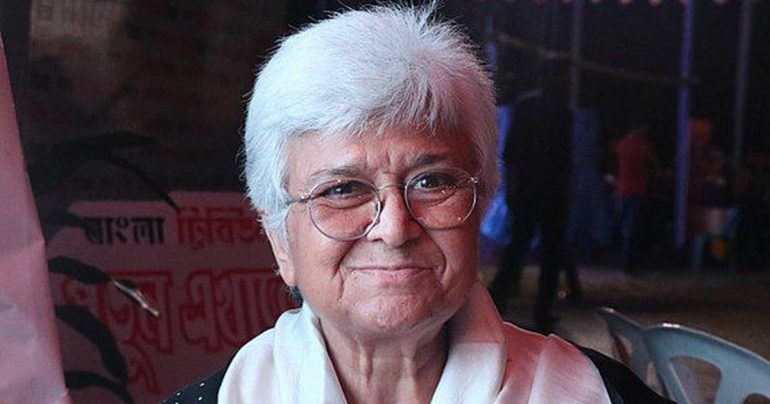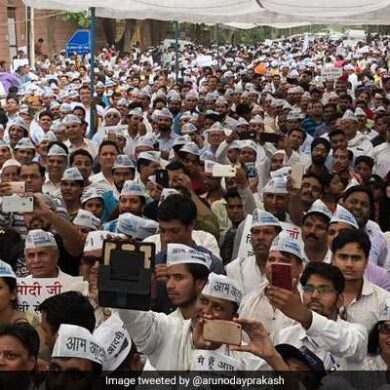Kamla Bhasin passes away on Sunday (26 September) at the age of 75 after a hard struggle with cancer. She is best known for grafting a slogan first used by Pakistani women opposing Gen Ziaul Haq’s tyranny on the Indian political system: the universal and unwavering demand for Azadi, or freedom.
One version of the slogan which goes back to 1991 states that Bhasin caught a lot of attention when she was in her forties at the Women’s Studies Conference at Kolkata’s Jadavpur University. She started beating a drum and chanted ‘Azadi’ from patriarchy while standing among other women.
Azadi has now become one of the most common clarions of all student protests. In 2016, student leader Kanhaiya Kumar’s popular shouting at Jawaharlal Nehru University demanded “Azadi” from prejudice, Brahmanism, and poverty, and later, at anti-CAA-NRC protests that questioned India’s new and communally influenced citizenship rules.
Bhasin’s slogan was also featured in the film Gully Boy, portraying Ranveer Singh as a rap artist, in a song written by Dub Sharma. Since the 1970s, Bhasin has been an accomplished poet and a champion of women’s rights in India and South Asia.
She was born on April 24, 1946, in the Pakistani area of Mandi Bahauddin, and moved to Rajasthan with her family following partition.
In an interview, Kamla Bhasin stated she first heard the slogan among Pakistani feminists in the 1980s. “Pakistan at that time was ruled by Ziaul Haq. The first group that rose up against Ziaul Haq was not a political party, it was a group of Pakistani feminists. I witnessed one such meeting and that’s where they chanted it. The chant went: Aurat ka naara — azadi/Bachchon ka naara — azadi/Hum leke rahenge — azadi/Hai pyara naara — azadi.”
Kamla Bhasin was inspired by the chant and created her own poetry based on its basic spirit. “I know enough women who are totally patriarchal, who are totally anti-women, and I have known men who have worked for women’s rights their whole life.
Feminism is not biological: feminism is an ideology.”
What originated as a women’s battle cry quickly became linked to the struggles of laborers, Dalits, Adivasis, and others. She recited the now-famous lyrics during ‘One Billion Rising from South Asia,’ a movement to end violence against women. “From patriarchy — Azadi/from hierarchy — Azadi/from endless violence — Azadi/from helpless silence — Azadi… for self-expression — Azadi/for celebration — Azadi.” She always used to clarify that the journey was not anti-men, but rather anti-Patriarchy.
Kamla Bhasin began working full-time on her feminist network Sangat after leaving her employment at the United Nations in the 1970s.
Tributes flowed in from all around South Asia as Bhasin was laid to rest in Delhi’s Lodhi electric cremation.
Prashant Bhushana, human rights lawyer tweeted that “She was not only a women’s rights activist but also a philanthropist who set up and helped set up many fine public interest institutions like Jagori in HP & School for democracy in Rajasthan. She will be missed by many.”
Friends of Kamla Bhasin who knew her and have worked with her paid a tribute to her on Twitter:



